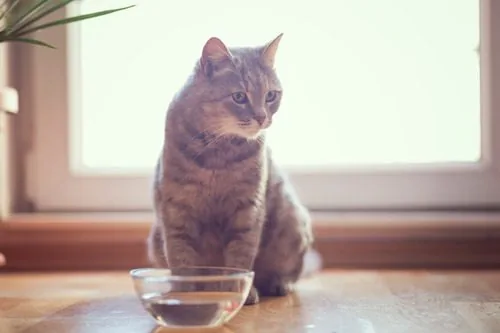Cat Dehydration: Signs to Watch For and How to Protect Your Pet
Welcome to Altadena Pet Hospital’s informative guide on cat dehydration. As loving pet owners, we all want to ensure our feline companions stay happy and healthy. Dehydration is a serious concern for cats and can lead to various health issues if not addressed promptly. In this article, we’ll discuss the signs of dehydration in cats and provide essential tips on how to keep your pet hydrated and thriving. Remember, while this article aims to educate, it’s always best to consult with your veterinarian for personalized advice regarding your cat’s health. If you notice any signs of dehydration in your cat, contact Altadena Pet Hospital at (626) 798-0738 or book an appointment online for professional guidance and care.

Recognizing Dehydration in Cats
Cats, like humans, require an adequate intake of water to maintain proper bodily functions. However, unlike dogs, cats are not typically big water drinkers, making them more susceptible to dehydration. Recognizing the signs of dehydration in your cat is crucial for early intervention. Some common indicators include:
- Decreased Skin Elasticity: One way to check for dehydration is by gently pinching the skin on the back of your cat’s neck. In a hydrated cat, the skin will quickly return to its normal position. However, in a dehydrated cat, the skin may take longer to snap back or remain tented.
- Dry Mouth and Gums: Dehydration can cause your cat’s mouth and gums to become dry and tacky. Healthy cats typically have moist gums, so any noticeable dryness could indicate dehydration.
- Sunken Eyes: When a cat is dehydrated, its eyes may appear sunken or dull. This is due to a lack of fluid in the body, causing the eyes to lose their usual brightness.
- Lethargy and Weakness: Dehydrated cats may exhibit signs of lethargy and weakness. They may be less active than usual and seem uninterested in their surroundings.
If you observe any of these signs in your cat, it’s essential to take action promptly to address their hydration needs.
Preventing Dehydration in Cats
Now that we’ve discussed how to recognize dehydration in cats, let’s explore some preventive measures you can take to keep your feline friend hydrated and healthy:
- Provide Fresh Water: Ensure your cat has access to clean, fresh water at all times. Consider investing in a cat fountain, as some cats prefer running water over still water.
- Wet Food Diet: Feeding your cat wet food can help increase their moisture intake. Wet food typically contains higher water content than dry kibble, helping to keep your cat hydrated.
- Regular Water Intake Monitoring: Keep track of your cat’s water intake to ensure they’re drinking enough. If you notice a significant decrease in water consumption, it could signal an underlying health issue that requires veterinary attention.
- Hydration during Hot Weather: Cats can become dehydrated more quickly during hot weather or if they spend time outdoors. Provide additional water sources and ensure your cat has access to shaded areas to help prevent dehydration.
By implementing these preventive measures, you can help protect your cat from dehydration and maintain their overall health and well-being.
Seeking Veterinary Care
While preventive measures are essential, it’s essential to seek veterinary care if you suspect your cat is dehydrated or experiencing any health concerns. Your veterinarian can conduct a thorough examination and recommend appropriate treatment options tailored to your cat’s specific needs. Contact Altadena Pet Hospital at (626) 798-0738 or book an appointment online if you have any concerns about your cat’s health or hydration status.
Contact Altadena Pet Hospital Today!
Recognizing the signs of dehydration in cats and taking proactive steps to prevent it are vital aspects of responsible pet ownership. By staying vigilant and providing adequate hydration, you can help keep your beloved feline companion happy and healthy for years to come. Remember, if you ever have any concerns about your cat’s health, reach out to Altadena Pet Hospital for expert guidance and care.
